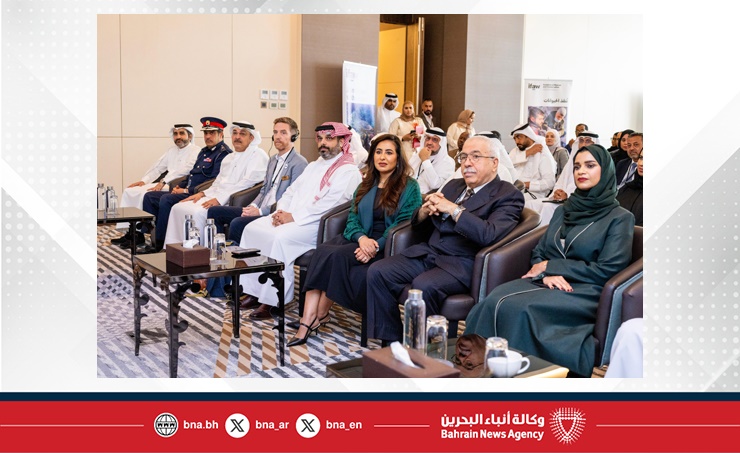SCE hosts regional preparatory workshop for 20th CITES Conference

Manama, Sep. 16 (BNA): Amna Hamad Al Rumaihi, Chief Executive of the Supreme Council for the Environment (SCE), inaugurated the regional preparatory workshop for the 20th Conference of the Parties to the Convention on International Trade in Endangered Species of Wild Fauna and Flora (CITES). The workshop was organised by the SCE in partnership with the International Fund for Animal Welfare (IFAW) and with support from the Shark Conservation Fund (SCF).
His Highness Shaikh Isa bin Mohammed Al Khalifa, Deputy Chief Executive of the SCE, was present.
Al Rumaihi emphasised that the workshop reflects the Kingdom's commitment to supporting international efforts to protect endangered species and strengthen regional cooperation, particularly regarding marine species, including sharks and rays, which face increasing threats. She noted that hosting the event underlines Bahrain’s role as an active partner in the CITES process and enhances the region’s standing in shaping relevant international decisions, expressing confidence that the workshop’s outcomes will contribute to developing constructive recommendations supporting biodiversity protection at both regional and global levels.
Dr. Akram Isa Darwish, Regional Director of IFAW for the Middle East and North Africa, said that the 20th Conference of the Parties will bring together governments from around the world, and that decisions on regulating wildlife trade will have a lasting impact on many species. He added that the workshop provides an important opportunity for the region to discuss proposals and develop unified recommendations to strengthen the implementation of the Convention at both regional and global levels.
Discussion topics included proposals to list new species under the CITES appendices, particularly sharks and rays, which face growing threats from unregulated trade in their fins, meat, and oils.
Dr Nabegh Ghazal Aswad, Programmes Director at IFAW in the Middle East and North Africa, explained that "unregulated trade has contributed to a global decline in shark populations, with many species classified by the International Union for Conservation of Nature (IUCN) as endangered or critically endangered." He highlighted the urgent need for "stronger protective measures, fully regulated and sustainable trade, and trade bans where necessary," noting that the workshop provides an opportunity to build on progress made at previous conferences and pave the way for stronger commitments.
Participants will also discuss ways to reduce demand for illegal wildlife products through interventions aimed at changing consumer behaviour and weakening illegal markets at their source.
The workshop, held from September 16 - 18, forms part of preparations for the 20th CITES Conference of the Parties (CoP20), scheduled to take place in Samarkand, Uzbekistan, from November 24 to December 5.
CITES Conferences of the Parties serve as a unifying platform bringing together member states, alongside observers from international and non-governmental organisations working in wildlife protection and trade.
This year’s conference (CoP20) carries particular significance as it coincides with the 50th anniversary of the Convention’s entry into force and marks the 20th session where the Parties collectively determine the future governance of wildlife trade. It is one of the most important global platforms for shaping international policy on wildlife trade, with representatives from over 180 countries participating.





